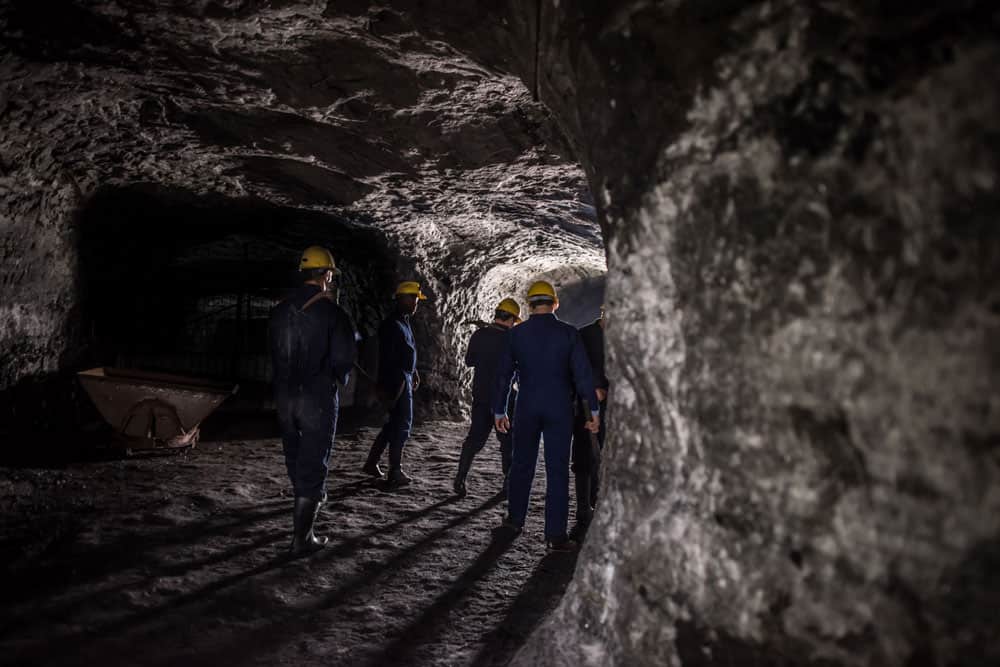Unionization Challenges for Mineworkers during COVID-19
The COVID-19 pandemic is wreaking havoc on the global economy, with far-reaching implications for employment, unionization, the world of work, mineworkers’ rights, and community livelihoods.
Workers in the mining sector have been particularly affected by the pandemic, given the employment architecture of the industry, which can feature remote fly in–fly out or drive in–drive out operations, congested underground working conditions, and workers residing in mine-site compounds or neighbouring communities. These conditions make some COVID-19 preventative measures difficult to implement, which makes mineworkers vulnerable to both acquiring and spreading the virus.
As in previous crises, the COVID-19 pandemic has both proven and deepened the resilience of trade unions.
Given the nature of the mining industry and its importance to national economies, a range of government responses to the pandemic are affecting our IndustriALL Global Union affiliates. Some operations have been put into complete lockdown (where health overrides economic interests), while other mines have been exempted completely (where economic interests prevail, conditional upon strict health protocols). Our affiliates occupy both sides of these two extremes, as well as the middle ground of partial lockdown or care and maintenance.
How Are Lockdown Measures Impacting Union Activity?
The lockdown measures can impede many aspects of union activity, which traditionally involve direct contact and large gatherings, such as organizing, recruitment, and direct action.
Trade unions have adapted and found innovative ways to maintain activities during the crisis. IndustriALL Global Union has proposed a set of innovative ways to fight for its members and safeguard their interests and rights amid urgent lockdown measures.
In a crisis, mineworkers need their unions more than ever. For instance, trade union pressure in South Africa led the Department of Mineral Resources and Energy to issue Guidelines for a Mandatory Code of Practice on the Mitigation and Management of COVID-19, which took effect in May. Consequently, mining companies must develop a mandatory code of practice to address the following key elements for mineworkers:
- Risk assessment and review
- Start-up and ongoing procedure for mines
- COVID-19 management program
- Monitoring and reporting
- Compensation for occupationally acquired COVID-19.
The guidelines seek to reinforce the provisions of the International Labour Organization (ILO) Convention 176 – Safety and Health in Mines Convention, 1995, one of the key ILO Conventions ratified by South Africa.
It is widely understood how unionization and collective bargaining help workers achieve improved working conditions. This is especially important during a pandemic to promote health and safety, including during lockdown or the easing of lockdown restrictions. Respect for collective bargaining and the right to a safe work environment, as per ILO Convention 176, have been suffering during this crisis, particularly in Latin America and some developing and developed countries. For instance, in Australia, the biggest mining company in the world by capitalization is using COVID-19 to unilaterally and without consultation change workers’ shift regimes while also engaging in other questionable practices in Chile and Peru.
A dominant narrative during COVID-19 has been about preserving the health and safety of mineworkers, but that narrative often excludes the importance of unionization—specifically the fact that unionization can be crucial to achieving healthy and safe working conditions for mineworkers.
Non-Negotiable Trade Union Principles
Trade union responses to this crisis must be predicated on three fundamental and non-negotiable principles:
- Consultation with unions
- Income security and respect for negotiated collective bargaining in the event of operations shutting down or going into a care and maintenance state
- The highest level of occupational health and safety, which includes the right to refuse unsafe work, testing, screening, monitoring, reduced densification for underground and transported workers, and quarantine measures for affected workers.
These principles are the bedrock of the IndustriALL Global Union’s unionization drive. Our affiliates have used a variety of actions to push through these non-negotiable demands, including strikes, threats of strikes, demonstrations, petitions, and solidarity action.
The COVID-19 pandemic has accelerated the future and prepared trade unions for the new world of work in mining post-COVID-19.
The COVID-19 crisis has not blunted unionization. Through continued activism by our affiliates, innovation, and the use of virtual platforms, the push for unionization remains alive. The COVID-19 pandemic has accelerated the future and prepared trade unions for the new world of work in mining post-COVID-19. Although the pandemic holds the spectre of strained industrial relations between mining companies and trade unions, it has also opened space for growth where unions have successfully consolidated and deepened social dialogue, such as in Zambia, South Africa, and the Democratic Republic of the Congo.
As in previous crises, the COVID-19 pandemic has both proven and deepened the resilience of trade unions. Unions continue to safeguard and defend mineworkers’ interests, including the right to a safe and healthy working environment, by adapting to the circumstances and developing tools such as the ILO’s COVID-19 Prevention and Control Checklist for mineworkers. Importantly, mineworkers organized under their national trade unions and affiliated to IndustriALL Global Union alike have shown that trade unions save lives.
Kemal Özkan is Assistant General Secretary and Glen Mpufane is Director, Mining and Diamond, Gem, Ornament and Jewellery Processing (DGOJP) with the IndustriALL Global Union.
The preceding is a guest blog and does not represent the views or opinions of the IGF Secretariat or its member countries.

